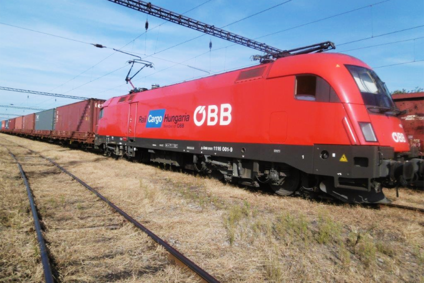
In August, the number of container trains handled by Rail Cargo Operator - Hungaria and operated by Rail Cargo Hungaria already exceeded the volume of the same period last year and increased further in September.
The first container train composed of 43 freight wagons arrived recently from Xi’an and is followed by new ones every week: there are currently two more trains on the way, and a third is being assembled in the Chinese city. As a specific feature, this train transports goods for the supply chains of several Central European countries: after handling in the Rail Cargo Terminal - BILK, some of the containers continue their journey to Vienna, Munich, Milano, Romania, Serbia and to other destinations.
The cargo comprised among others medical and hygienic equipment for containing the pandemic, medical and household electronic devices and clothing products.
The train connecting BILK with the city of Jinan also runs regularly, every two weeks: it arrives to the Hungarian border city Záhony (Eperjeske) via Mongolia, Russia and the Ukraine.
Container trains from China enter the European Union among others via the polish station, Malaszewicze, this year approximately 50 container trains organized by RCO arrived. The two trains per week transport products mainly to the Hungarian market, but from the RCT - BILK many containers continue their journey on rail to Italy, Romania and Turkey.
There is also a significant increase in traffic on the maritime Silk Road: compared to the traffic reduction caused by the pandemic in the spring, since mid-August ten trains per week have been transporting containers from the Greek Piraeus to the Hungarian markets and through Hungary to the Central European region. From the port of Idomeni weekly one, from the dock of Rijeka weekly four-five since August – instead of the previous three – and from Koper weekly four pair of trains transport containers loaded with Chinese or Hungarian goods. From Halkali trains forward containers and semitrailers in the direction of RCT - BILK and Sopron.
After the negative effects of the coronavirus, the Chinese production and transport started moving again, which resulted in the period between April and August in a 13% increase compared to the base volume of RCH's Asian intermodal traffic, which also led to a reorganization of the Adriatic ports. Rail Cargo Hungaria expects railway intermodal traffic, which recently showed an increasing trend, to strengthen further.
